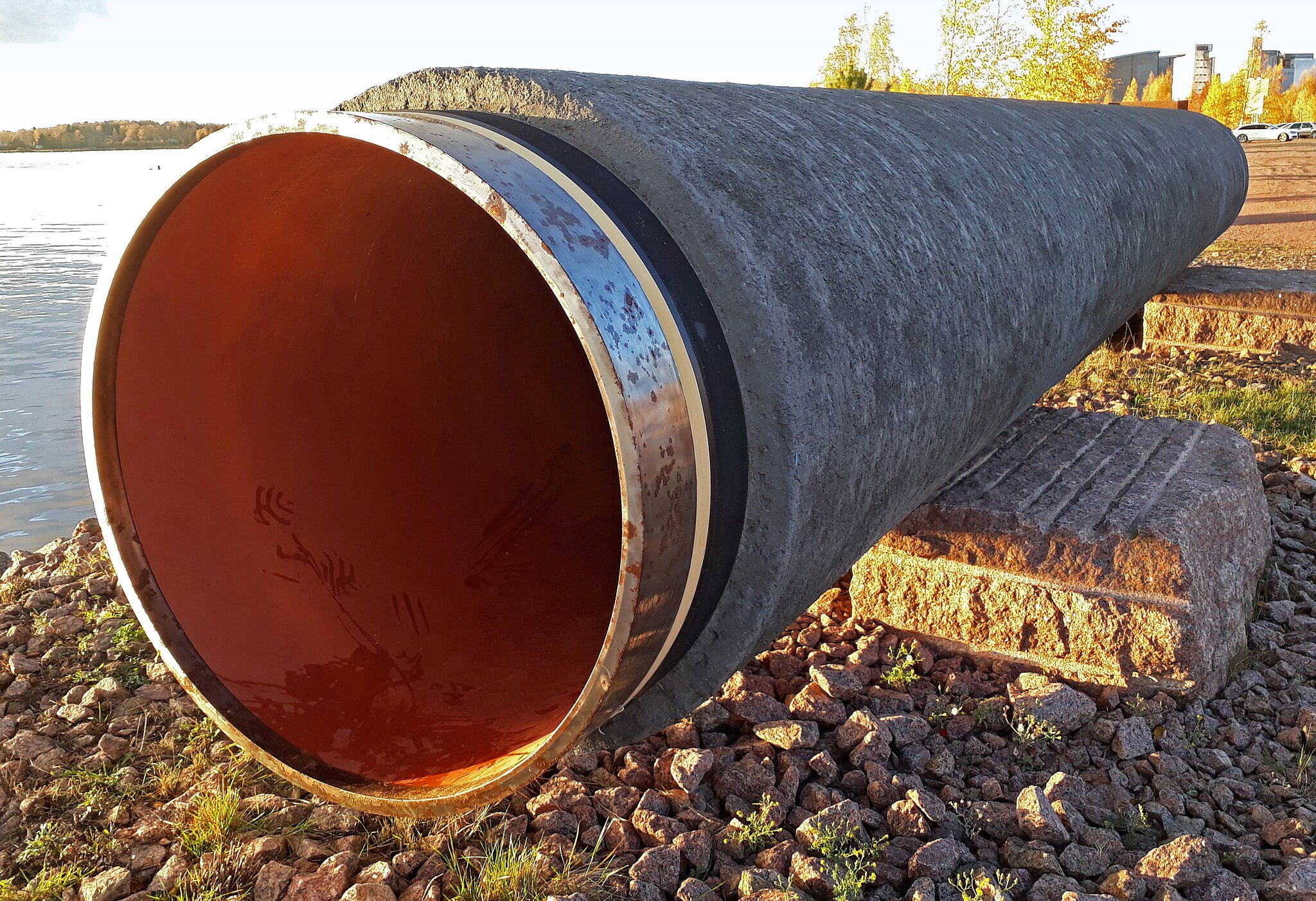Empty pipelines, empty pockets

Nord Stream pipelines like this one, on display in Finland, used to deliver Russian gas to Germany
Anna Johnson — The war between Russia and Ukraine has wreaked havoc on trade relationships across the region and throughout the world. The energy industry has been one of the hardest hit. In the weeks after Russia invaded Ukraine, escalating the existing invasion to a full blown war, global gas prices hit record highs throughout Europe. The destruction of several Nord Stream pipelines delivering Russian gas to Germany made the crisis even worse. Some economists say Germany has lost an entire decade of progress because of the energy crisis.
The effects of the energy crisis are felt on different scales. For an individual, the record high gas prices make it much more expensive to heat their home. High gas prices also make producing goods more expensive, limiting spending and leading to reduced wages and even the loss of manufacturing jobs. That, in turn, causes a reduction in consumer spending and limited economic growth on a national scale. This cycle of inflating prices, rising production costs, and wage cuts contributed to a shrinking German economy in the last three months of 2023. While the official definition of a recession requires two consecutive quarters of economic shrinkage, many economists agree Germany is on its way to a recession similar in scope to that of the 2008 financial crisis. Policy decisions on a national scale, including an energy price break to help slow the rate of inflation and ease pains for consumers on an individual level are helping, economists say, but they were implemented too late to have prevented the crisis in the first place.
But this economic downturn is not limited to Germany. The energy crisis has slowed economic growth across the entire region of Europe. Projections from the International Monetary Fund predict growth in the European region to be the slowest of any global region through 2025. Compared to global growth rates, the European region is clearly at an economic disadvantage. In an effort to help European states recover from the crisis, the functional region of the European Union adopted emergency regulations to cut down on energy use and cap energy revenues to lower prices. These regulations appear to have worked in the short-term to ease the pains of the crisis. With more stable, albeit more expensive energy alternatives now in place, the European energy crisis appears to be over. Now, states must deal with the long-term fallout of the crisis. The geographic scope of Russia’s invasion is vast, and the implications are economic and not just military.
Image Credit: Vuo, CC BY-SA 4.0, via Wikimedia Commons

